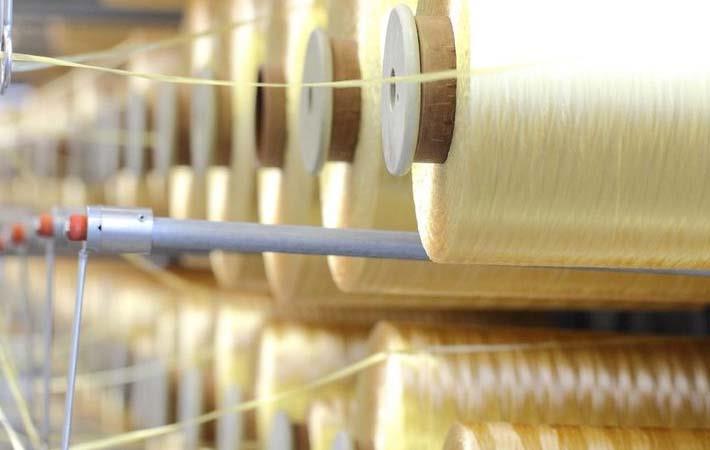Evonik has developed a new generation of polyimide fibres, P84 HT, for the rising demands of the industry. The new product is distinguished by improved mechanical stability and flexibility at continuously high operating temperatures. Evonik, from Germany, is a leading producer of chemically resistant, thermally stable, and non-flammable polyimide fibres.
The new polyimide fibre continues Evonik’s three decades of tradition of developing and producing high-performance polymer-based fibres for the hot gas filtration market at the group’s Lenzing/Schörfling sites in Austria. With their unique multi-lobal cross-section and the largest surface area available in the market, these high-tech fibres from Evonik offer the best filtration efficiency. Due to their excellent chemical and physical properties, P84 HT high-performance fibres can be used in a wide variety of applications. These range from filter media for high-temperature filtration, through protective clothing and sealing materials for space vehicles, to various high-temperature applications such as thermal insulation, according to Evonik.Evonik has developed a new generation of polyimide fibres, P84 HT, for the rising demands of the industry. The new product is distinguished by improved mechanical stability and flexibility at continuously high operating temperatures. Evonik, from Germany, is a leading producer of chemically resistant, thermally stable, and non-flammable polyimide fibres.#
Another competitive differentiating factor of P84 HT consists in the improved textile properties at high temperatures. The new polyimide fibre from Evonik retains its flexibility better than other materials, even at temperatures around 280°C. As a result, it remains more stable in applications with relatively high average temperatures and frequent temperature spikes. A standardised bending test shows that the new P84 HT fibre has almost twice the flexibility of standard materials.
In hot gas filtration applications, for example, the innovative P84 HT filter media retain significantly higher permeability over their entire life cycle. Depending on the field of application, this could reduce emission of fine dust, waste gases, and sensibly reduce the total cost of ownership of the plant.
Fibre2Fashion News Desk (GK)
